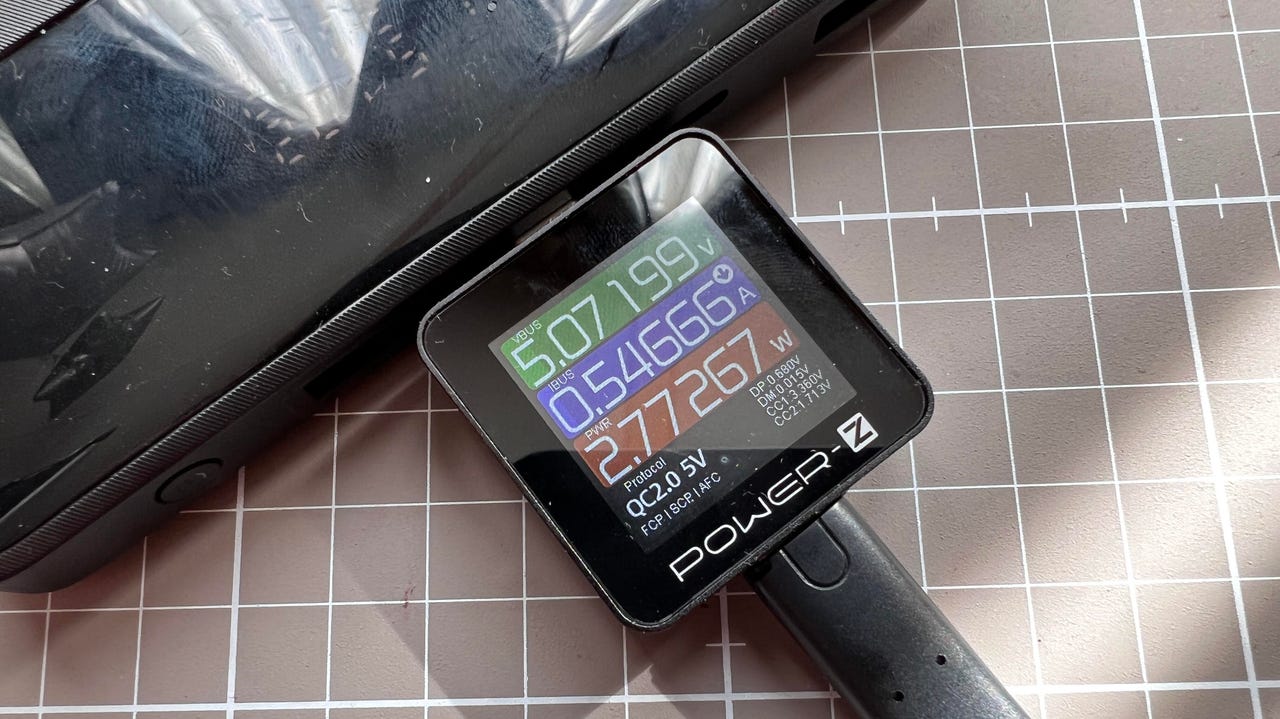'ZDNET Recommends': What exactly does it mean?
ZDNET's recommendations are based on many hours of testing, research, and comparison shopping. We gather data from the best available sources, including vendor and retailer listings as well as other relevant and independent reviews sites. And we pore over customer reviews to find out what matters to real people who already own and use the products and services we’re assessing.
When you click through from our site to a retailer and buy a product or service, we may earn affiliate commissions. This helps support our work, but does not affect what we cover or how, and it does not affect the price you pay. Neither ZDNET nor the author are compensated for these independent reviews. Indeed, we follow strict guidelines that ensure our editorial content is never influenced by advertisers.
ZDNET's editorial team writes on behalf of you, our reader. Our goal is to deliver the most accurate information and the most knowledgeable advice possible in order to help you make smarter buying decisions on tech gear and a wide array of products and services. Our editors thoroughly review and fact-check every article to ensure that our content meets the highest standards. If we have made an error or published misleading information, we will correct or clarify the article. If you see inaccuracies in our content, please report the mistake via this form.
This USB-C tester will tell you if your Apple chargers are genuine


If you spend a lot of time around malfunctioning and misbehaving tech, having a USB tester can save you a lot of time and hassle when it comes to diagnosing problems.
I use a number of different USB meters, but lately, I've been turning to ChargerLab's Power-Z KM002C USB-C meter more and more.
Physically, I like the KM002C USB-C meter. It's a small, tidy setup. The 1.3-inch color screen is clear and easy to read. The four buttons make controlling it a lot easier than some of the other meters I've seen that have rotating dials and tiny click switches on them.
I often find I'm wasting a lot of time trying to figure out how the meter works, randomly jabbing at buttons and flicking switches. The KM002C is a lot easier in that it has an up button, a down button, an enter button, and a back button.
Four simple buttons.
Thought has been put into making this very usable. Which is a good thing.
See also
There's USB-C in and out, and a port for connecting to a PC or power. The ports are good quality too -- sometimes these meters are kitted out with poor-quality components. This one is really well made.
The last thing I want is USB ports that feel crunchy when I'm plugging them into devices or attaching cables.
The screen is also big, clear, and easy to read. I can switch between a number of color schemes, and I can rotate the display 90 degrees with the tap of a button, so I can see the readout no matter how I have it connected.
Apple charger check.
Tapping a button takes me through the different functions, such as a graphing meter. It's all easy and intuitive. The Power-Z KM002C's tests include voltage/current detection, capacity/energy, USB-C E-Mark, PDO and much more. It supports up to 50V 6A (240W in PD).
Do be aware though that there are some tests you need to be careful about running because they could damage things. This is why it's important to familiarize yourself as much as possible with the meter before using it and to read what it's telling you (even if the wording is sometimes a bit... unclear).
Also: Using the wrong USB-C cable can damage your tech. Here's how to avoid that
This is especially true of the test that checks what charging protocols a charger can handle, as shown below. With this test it is important to not have any device connected to the tester other than the charger as it can push damaging voltages down the cable to the device.
Be sure to read the warnings!
In addition to all the power and protocol information that this can give me, two features that I really like are its ability to detect genuine Apple chargers (see earlier photo) and read the E-Mark chip in USB-C cables (see below).
USB-C E-Mark chip reading.
These are both really handy features that I like having in a single device.
There are other little, thoughtful touches too, like a QR code pointing to the manual built into the meter.
This QR code will take you the tester's manual.
This is a really useful feature, and I wish all meters had this!
There's also software that allows you to connect the meter to a PC (no Mac support) to log information and allow you to see the data on a bigger screen. This software is pretty good once you figure your way around it.
One downside I have to point out is the manual.
It's not the worst I've come across by far (in fact, it's up there as one of the best manuals that come with USB meters), but it's still not great. A search on YouTube will uncover better instructions for using this meter.
At $99.99, the ChargerLab Power-Z KM002C USB-C meter isn't cheap, but it's a quality, well-made, functional meter that I find is a cut above the rest. It has features that you won't find on other USB-C meters, and it's much easier to use than many of the cheaper meters.